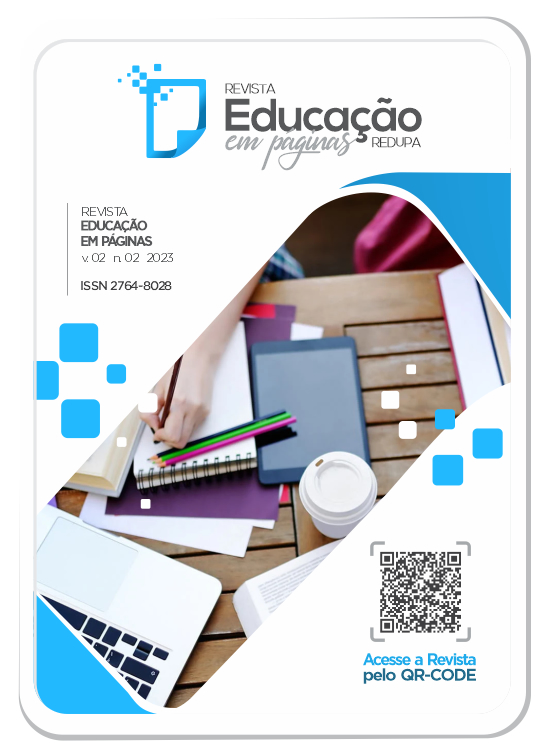Remote learning and the challenges of alternating pedagogy: the case of PRONERA/EJA/RJ during the pandemic
DOI:
https://doi.org/10.22481/redupa.v2.13414Keywords:
rural education, remote learning, adult and youth education, alternating scheduleAbstract
Rural communities have historically been excluded from access to formal education. Educational inequality in Brazil affects different groups, and by the end of the 20th century, movements advocating for the right to education for all emerged, such as rural and adult education. This struggle led to the creation of the National Program for Education in Agrarian Reform. In 2019, a project was established in the North and Northwest Fluminense regions with the aim of enhancing the educational level of young adults in Agrarian Reform settlements and rural communities during the initial years of Elementary School, through the pedagogy of alternation. This approach involves alternating between school time and community time, and interaction with the local environment is crucial to the teaching-learning process. However, in 2020, social distancing measures were implemented due to the COVID-19 pandemic, preventing in-person gatherings of project participants, including both learners and educators. With this in mind, the current work aims to analyze the restructuring of the alternating education process of PRONERA/EJA in the North and Northwest Fluminense region in the context of the COVID-19 pandemic. To achieve this, a combination of bibliographic research and fieldwork employing observation techniques was utilized.
Downloads
References
ABED - ASSOCIAÇÃO BRASILEIRA DE EDUCAÇÃO A DISTÂNCIA. Educação básica: atividades Remotas 2020 [recurso eletrônico]. São Paulo: Associação Brasileira de Educação a Distância (ABED), 2020.
BENJAMIN, César; CALDART, Roseli Salete. Por uma educação básica do Campo. Projeto popular e escolas do campo. Brasília, DF: Articulação Nacional Por uma Educação Básica do Campo, 2000.
CARVALHO, K. R. S. A et al. Trajetória, avanços e perspectivas da EJA face à BNCC. Educação em Revista, Marília, v.21, n. 02, 2020. p. 51-64
FREIRE, Paulo. Pedagogia da autonomia: saberes necessários à prática educativa. São Paulo: Paz e Terra, 1996.
GIMONET, Jean Claude. Praticar e compreender a Pedagogia da Alternância dos CEFFAS. Tradução de Thierry de Burghgrave. Petrópolis, RJ: Vozes, Paris: AIMFR- Associação Internacional dos Movimentos Familiares Rurais, 2007
INCRA. Educação. 30 set. 2020. Disponível em: https://antigo.incra.gov.br/pt/educacao.html. Acesso em: 09 set. 2021.
INEP - INSTITUTO NACIONAL DE ESTUDOS E PESQUISAS EDUCACIONAIS ANÍSIO TEIXEIRA. Sinopse Estatística do Questionário Resposta Educacional à Pandemia de Covid-19 no Brasil - Educação Básica. Brasília: Inep, 2022. Disponível em: <https://www.gov.br/inep/pt-br/areas-de-atuacao/pesquisas-estatisticas-e-indicadores/censo-escolar>. Acesso em: 12 ago. 2023.
LITTO, Fredric Michael. FORMIGA, Manuel Marcos Maciel (Orgs.). Educação a distância: o estado da arte. São Paulo: Pearson Education do Brasil, 2009.
MOLINA, Mônica; AZEVEDO DE JESUS, Sônia Meire dos Santos. Contribuições do PRONERA a Educação do Campo no Brasil. In: SANTOS, Clarice Aparecida dos; MOLINA, Mônica; AZEVEDO DE JESUS, Sônia Meire dos Santos (Orgs.). Memória e História do PRONERA: Contribuições do Programa Nacional de Educação na Reforma Agrária para a Educação do Campo no Brasil. Brasília: Ministério do Desenvolvimento Agrário, 2021, p. 29-67.
MANTOAN, Maria Tereza Égler. Inclusão escolar: O que é? Por quê? Como fazer?. São Paulo: Moderna, 2003.
NETO, Luiz Bezerra. EDUCAÇÃO DO CAMPO OU EDUCAÇÃO NO CAMPO? Revista HISTEDBR On-line, Campinas, n.38, jun. 2010. p. 150-168
PIERRO, M. C. D. HADDAD, S. Transformações nas políticas de Educação de Jovens e Adultos no Brasil no início do terceiro milênio: uma análise das agendas nacional e internacional. Cad. Cedes, Campinas, v. 35, n. 96, p. 197-217, maio-ago., 2015.
RODRIGUES, Anny Camila Lima; OLIVEIRA, Fábio Freire de; COSTA, Odaléia Alves da. Conhecendo a pedagogia da alternância. São Luís: IFMA, 2020.
SANTOS, Milton. A Natureza do Espaço: Técnica e Tempo, Razão e Emoção. 4 ed. São Paulo: Editora da Universidade de São Paulo, 2017.
SANTOS, Milton. SILVEIRA, Maria Laura. O Brasil: território e sociedade no início do século XXI. 9. ed. Rio de Janeiro: Record, 2006.
SANTOS, Patrícia, VINHA, Janaina Francisca De Souza Campos. Educação do/no campo: uma reflexão da trajetória da educação brasileira. Araraquara, Uniara, 2018. Disponível em: https://www.uniara.com.br/legado/nupedor/nupedor_2018/10/12_Patricia_Santos.pdf. Acesso em: 22 jun. 2021.
SOUZA, Maria Antônia De. Educação do campo, desigualdades sociais e educacionais. Educ. soc., Campinas, v. 33, n. 120, p. 745-763, jul./set. 2012. Disponível em: https://www.scielo.br/j/es/a/3QpDmM9tDDh4TWYh5CmmHpB/?lang=pt. Acesso em: 22 jun. 2021.
Downloads
Published
How to Cite
Issue
Section
License
Copyright (c) 2023 Rebeca Brasil Fonseca Vieira, Eduardo Moreira

This work is licensed under a Creative Commons Attribution 4.0 International License.







